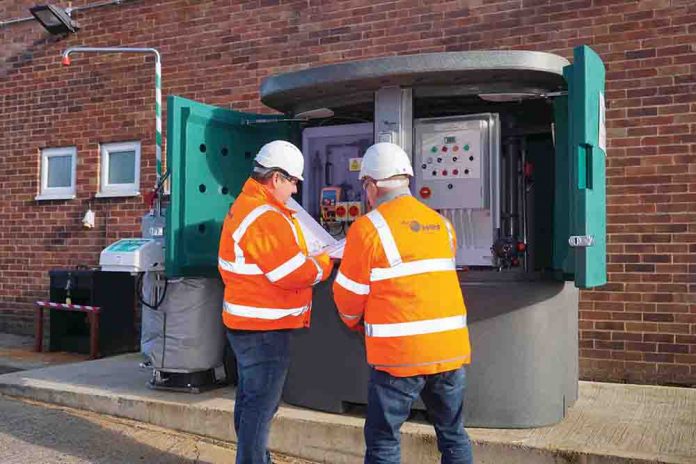Is it time to scrap your malfunctioning or broken-down chemical dosing system, or should you carry on repairing it? In fact, there are more options than just those two, and with proper maintenance you can leave that end-of-life decision to the distant future.
If water and wastewater treatment operations are to be cost-effective, safe and compliant with regulations, their dosing systems must be reliable and efficient. Judging by the Environment Agency’s latest annual report on environmental performance, which shows four out of England’s nine water and sewerage companies falling short of the expected standards, there is room for improvement.
Corporations have traditionally used the ‘50 per cent rule’ to guide decisions on whether to repair or replace equipment. When breakdown and repair expenses amount to more than half the cost of replacing it, replacement is deemed the best option. Today, however, the drive toward reducing waste and creating a circular economy is shifting that 50:50 approach.
More sustainable alternatives include reconfiguring, upgrading and even remanufacturing existing systems. For maximum sustainability, this should be accompanied by improved maintenance which will benefit both your business and the environment by increasing the equipment’s longevity, reliability and efficiency.
Reconfigure and upgrade
As well as routinely checking and maintaining dosing systems, you should have them audited regularly to make sure they still meet your application’s needs. The volume or quality of wastewater being treated may have changed, for example, or you may be using different chemicals. Adjusting a system’s configuration to suit the new conditions can make it more effective and economical, while extending its service life.
An audit may conclude that your system no longer meets current standards, especially if it hasn’t been reviewed for a long time. Upgrading certain components may be enough to remedy this. Any damage and wear revealed by the survey can be addressed by timely component replacement to enhance performance and avoid breakdowns. In some cases, these enhancements may go so far as to constitute remanufacturing of the system.
If all possibilities for reviving a system have been considered and replacement still seems the only way forward, there is one further avenue to explore: dosing system hire. A hired system can be rapidly deployed in an emergency and will give you time to think before you invest in new equipment. Companies increasingly see it as a longer-term solution too, with benefits including conservation of capital budgets and greater flexibility for future changes.
Make maintenance a priority
Whatever you decide, you should never be tempted into the false economy of skimping on maintenance. Breakdowns are much more likely if your dosing system is poorly maintained. Unplanned downtime is expensive in terms of lost productivity, repair bills and replacement part costs. A well-maintained system keeps on working reliably, lowers operating expenditure and adds resilience to your operation.
Other ongoing expenses related to inadequate maintenance may include inefficient energy consumption, inaccurate and wasteful chemical doses, and costs related to damage or injury arising from a deteriorating system that leaks chemicals. In the longer term, failing to maintain your asset shortens its lifespan and puts pressure on your company’s capital expenditure budget to replace it.
From an environmental protection perspective, a malfunctioning system which doses too little or too much chemical is a serious threat. Low dosing may lead to discharge of insufficiently treated wastewater. Excessive dosing may make discharges chemically toxic. Significant chemical leakage or untreated discharges due to faulty equipment can be harmful to rivers, streams and other natural habitats. The resulting impacts on your business could include large fines, enforcement undertakings, remedial works and a damaged reputation.
In summary, investment in regular maintenance will bring about the best environmental and commercial outcomes. In addition, you should schedule periodic system audits to ensure your equipment remains fit for purpose and identify actions needed to keep it healthy, efficient and reliable over an extended lifetime. When it comes to end-of-life decisions, the options have now been expanded way beyond a straight choice between repair or replace.
For further information, visit www.wes.ltd.uk
Contact WES to explore your options, including our Gold, Silver & Bronze Planned Maintenance packages for assured peace of mind




